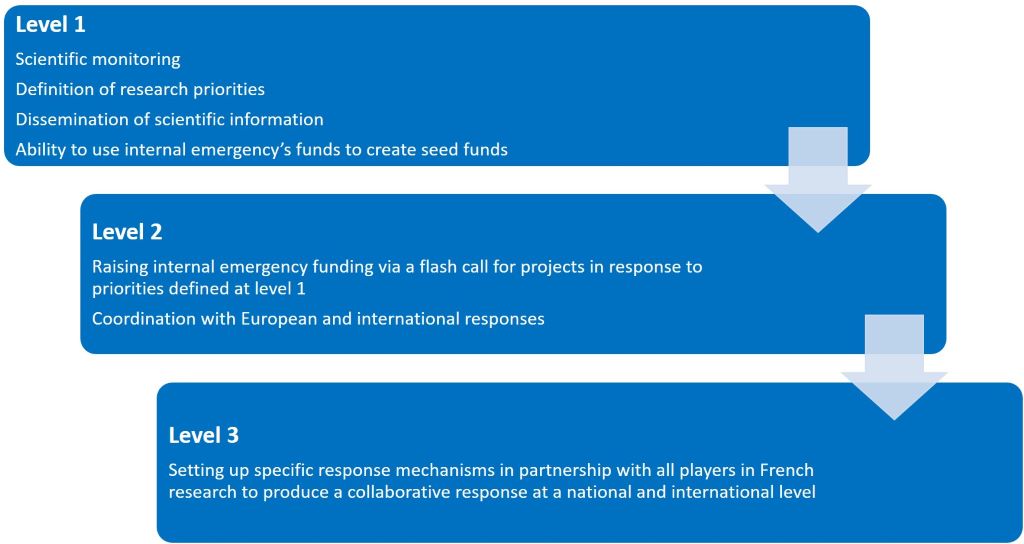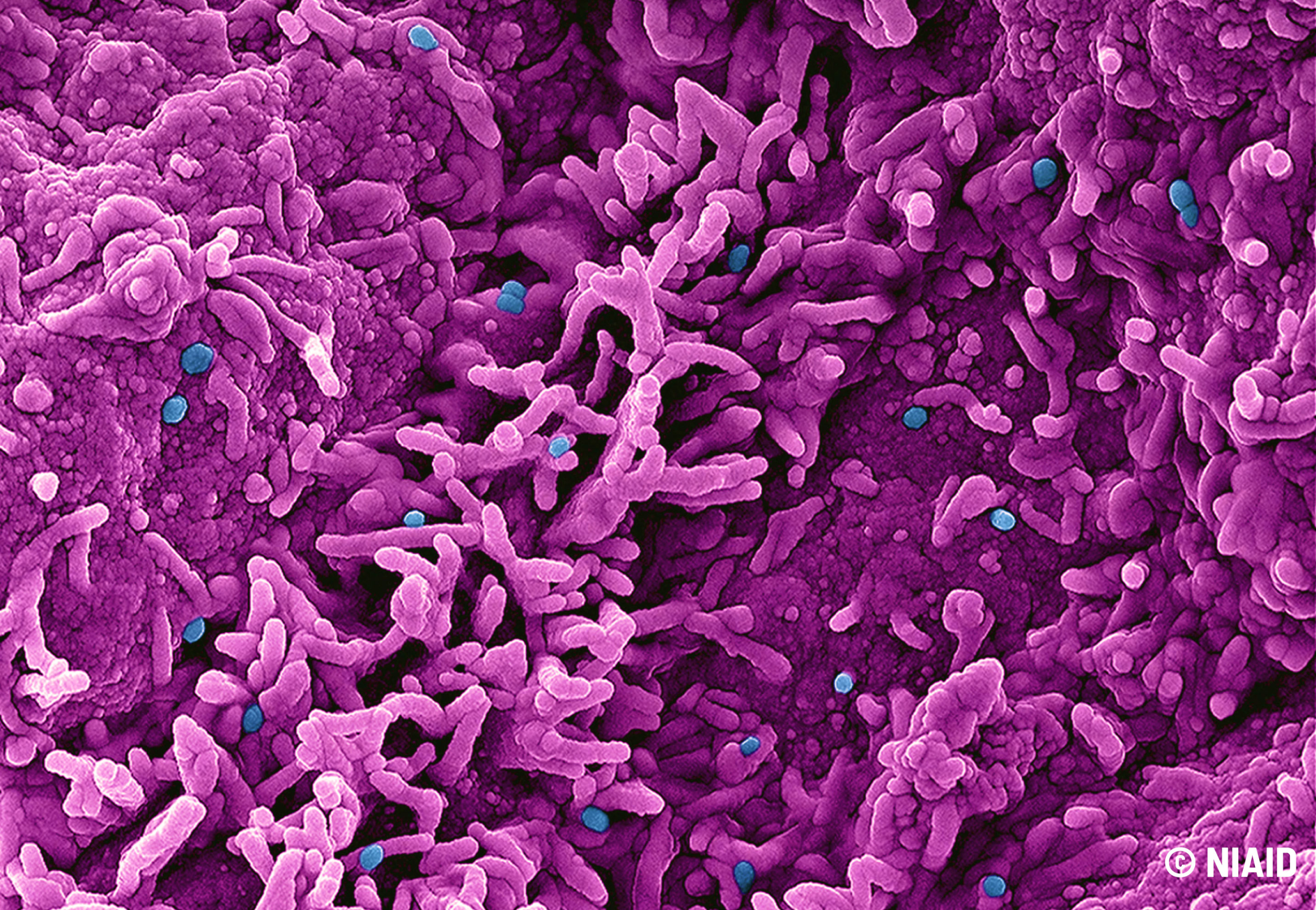Emergence programme
In the event of an emerging or re-emerging epidemic in France or worldwide, our agency can activate a facilitation and watch procedure for a rapid response to health crises.
Last updated on 17 July 2024

Follow the latest scientific news from the Emergence Units
Our agency regularly monitors for the latest research articles to help improve your understanding of how epidemics evolve and combat misinformation.
Context
While our agency plays a central support role in preparing responses to future infectious threats, it also plays a particular role in the French and international scientific landscape in the response to epidemic crises that fall within its remit: it acts as a key player, inter-institutional leader and research accelerator. We use a multimodal system with three levels of response according to the severity of progressive response levels.
Response levels
- Level 1: Implementation of an enhanced scientific watch in the event of an epidemic crisis; definition of priorities for prevention research (crisis preparedness) in alignment with the scientific communities, expert groups and associations; production of information for public decision-makers.
- Level 2: Release of emergency funding to set up research actions within the scope of the research priorities set out in Level 1. Coordination with European and international responses.
- Level 3: In the event of a crisis necessitating enhanced coordination at national level, implementation of specific response mechanisms with all French research players.

Emergence Units
In the event of an epidemic outbreak caused by the emergence or re-emergence of a pathogen in France or elsewhere in the world, our agency activates a dedicated multi-level procedure providing a proportionate response to health crises. At present, there are no Emergence Units in operation.
Avian Influenza A(H5N1) Emergence Unit
Status: active – level 1

Mpox Emergence Unit
Status: active – level 1

Multi-country mpox Emergence unit (2022)
Status: discontinued since May 2023 – level 2
